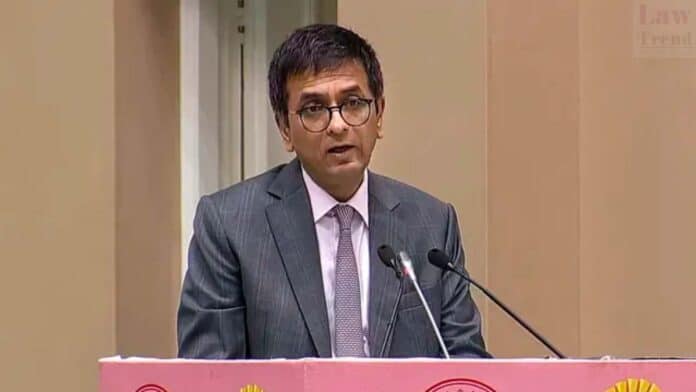In a significant push toward reforming the judicial recruitment process, Chief Justice of India, D Y Chandrachud, highlighted the urgent need for a national-level strategy during his speech at the ‘National Conference of the District Judiciary’ valedictory ceremony on Sunday.
Emphasizing the critical role of skilled judicial personnel in addressing the surging case backlog, Chief Justice Chandrachud called for a unified recruitment approach. “The time has come now to think of national integration by recruiting members to the judicial services across the narrow walls of regionalism and state-centred selections,” he remarked. The current regional approach to judicial appointments, he believes, hampers the system’s ability to address its vacancies efficiently.
With judicial and non-judicial vacancies at the district level standing at 28 percent and 27 percent respectively, the Chief Justice pointed out the necessity for courts to operate at full capacity to manage and exceed the current national average disposal rate of 95 percent.
The Supreme Court of India’s Centre for Research and Planning is also taking steps to standardize judicial training by integrating state-level modules with global best practices, aiming to overhaul the educational framework for judges nationwide. This includes the adoption of technology to track training progress and the introduction of innovative training methodologies.
Moreover, Justice Chandrachud also underlined the importance of well-being for judicial officers. The conference dedicated a session to judicial wellness, addressing mental health issues and the overall health of the judiciary which, according to him, is paramount for maintaining the rule of law and public trust.
The Chief Justice also reiterated the commitment to reduce case arrears, revealing a structured three-phase action plan aiming to tackle cases pending for over a decade by June 2025. This initiative coincides with efforts to promote alternative dispute resolution methods, such as the Lok Adalat, which recently saw almost a thousand cases resolved within five days.




